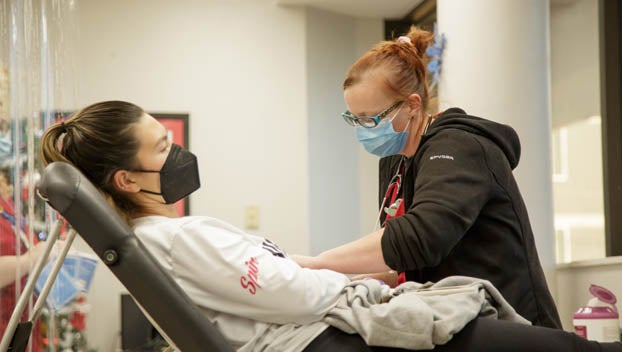What’s in the CARES Act?
Published 6:41 pm Monday, March 30, 2020
|
Getting your Trinity Audio player ready...
|
As state and federal officials rush to soften the economic blow of the COVID-19 pandemic, the federal government took a major step over the weekend in enacting the $2.2 trillion Coronavirus Aid, Relief and Economic Security Act into law.
“Even though this is not a perfect piece of legislation, I voted in favor of the CARES Act (Friday) because American workers, through no fault of their own, need help and they need it now,” said U.S. Representative Dr. Greg Murphy. “This piece of legislation provides desperately needed aid for workers, business owners, churches and other community institutions to help us in this unprecedented battle with an invisible enemy.”
The following are some key provisions of the legislation that could be helpful for Beaufort County residents.
INDIVIDUAL ASSISTANCE
Perhaps the biggest attention-getter for most Americans is the more than $300 billion in cash payments coming from the federal government. These include payments to most adults in the amount of $1,200 per person, or $2,400 for married couples, as well as an additional $500 for every child under 16. The payments will also go to individuals on Social Security, but college students under 24 will not receive the funds if their parents claim them as dependents on tax returns.
For most people, no action is required to receive the payment, which will come in the form of a direct deposit to the individual’s bank account. Payments are based on 2019 tax returns, or 2018 returns if last year’s returns haven’t been filed.
Sunday, U.S. Treasury Secretary Steve Mnuchin said most Americans can expect the funds to be deposited in their bank accounts within the next three weeks.
SMALL BUSINESS AID
Under the CARES Act, the U.S. Small Business Administration will offer loans of up to $10 million to allow small-business owners and nonprofits to continue providing paychecks for their employees. In many cases, this Paycheck Protection Program also applies to self-employed individuals and independent contractors.
Loan amounts are determined by an eight-week average of payroll costs, and payments are deferred for six months. Those maintaining their workforce may also be eligible to have part of their loan forgiven.
Borrowers can also receive $10,000 emergency grant cash advances that can be used for paid leave, to maintain payroll, make mortgage payments or repay debts. Those funds are available even if business owners don’t qualify for additional funds.
In addition, business owners may also apply for Economic Injury Disaster Loans up to $2 million. Full details of loans and other resources for small business owners can be found at www.sba.gov.
UNEMPLOYMENT PAYMENTS
While unemployment insurance claims continue to skyrocket statewide, the federal CARES act increases how much those claims will pay out and who is eligible. On top of existing state benefits, the legislation adds $600 per week from the federal government, and adds 13 weeks of unemployment insurance. It also allows self-employed people, such as freelancers and contractors, to apply for unemployment due to lost revenue.
According to the N.C. Division of Employment Security, the additional $600 in federal benefits will show up between April 4 and July 31. Additional information on filing unemployment claims can be found at des.nc.gov.
FOOD SECURITY
The legislation also takes steps to ensure that Americans have access to food. This includes $8.8 billion for child nutrition at public schools, a $15.5 billion infusion into the Supplemental Nutrition Assistance Program to cover new applications and $450 million for food banks and community distribution programs.
STUDENT LOANS
Those who have outstanding student loans will catch a break under the CARES Act, with all loan payments and interest deferred until Sept. 30. Employers can provide up to $5,250 in tax-free student loan repayment benefits.
The full text of the CARES Act can be viewed here.





